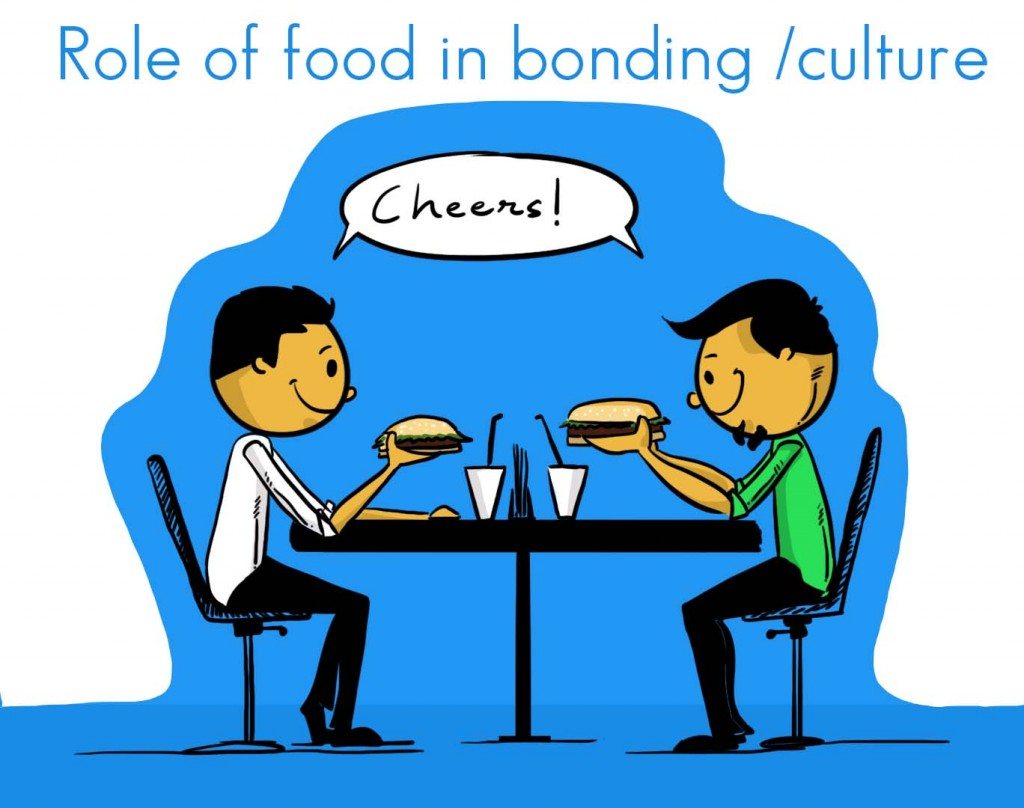As essential as food is for survival, it has more to it than just satisfying the hunger. Good food, in good company satisfies the heart and the soul. You must have heard your grandmothers say, food is Goddess Annapurna who deserves respect. In Indian culture, cooking food is considered a form of worship and wasting food is considered a sin.
The nature of the food we eat and the way we procure or produce food, the method of cooking, the celebration and rituals around food, make food a part of our existence and culture.
Every celebration, in almost every culture, is marked by the serving of good food. Not only does food for different festivals add to the variety and flavor but also have a healthy science and ideology behind it. For example, during the winter kite festival in India, consumption of sesame and jaggery (til laddoos) is a very significant part, and no doubt, because this combination is good to produce heat in the body. Or during holi, fresh chickpeas are roasted on the fire and eaten. These seasonal and local ingredients are interwoven in the festivity. This almost provides a time-table for the right food at the right time during the right season for the right health.
Fasts (upvasa and vrats) are observed as healthy food habits. Fruits and separate grains made especially on the days of the fast work as internal body cleansing. Every community and ethnic group has its own religious, yet logical framework around nature and timing of food consumed.
Even cooking and serving food includes emotional elements of love, care and nurturance. Those universally famous delicacies prepared by your grandma, the wife cooking meals for her husband with that taste of love in it, students on campus, soldiers, people with touring jobs etc. craving home-cooked meals. Good food served to guests is a wonderful way to express welcome. Food can express a lot of things that words can’t express.
Recipes are passed down as legacy from family to family, society to society and even culture to culture! Many chefs in fact are extremely secretive about their recipes. It is held close as treasure. Cooking is thus a refined art and a skill at the same time. It includes physical labor, emotional involvement and techniques.
Food is a philosophy, a way of life. A small story comes to my mind. A king had lost his kingdom and was fighting guerilla wars to win back his lost kingdom. But he would lose everytime. One day he sought refuge in a village house. The woman of the house served the king (in disguise) and her own son a plate of hot khichadi (a savory with rice and lentils cooked together) with ghee poured in the middle of the heap of the khichadi. The son tried to eat the khichadi near the ghee and burned his fingers. The mother snapped and said, “You are like our king – fights right to the center. Have patience, eat from the sides and wait for the khichadi to cool as you approach the center.” The king got the clue. The next time he rallied his forces; he started the war from the periphery and patiently progressed towards the center. This time, he won the war.
There is so much to learn from food or around food, that it almost forms our personality and culture.
Cultures are merging beautifully now that foods are crossing oceans and boundaries and becoming commonly available. For example, in India now we create a French toast, not found in France. We have a Chinese bhel not available in China! We have a paneer butter masala pizza or a pav bhaji pizza not available in Italy. As much we adapt to different taste pallets we also redefine food to suit our pallets.
Food defines relationships, food nurtures relationships. It has a far wider implication beyond physical health. It is fun, it is warmth, it is pleasure, and it is pure love.

